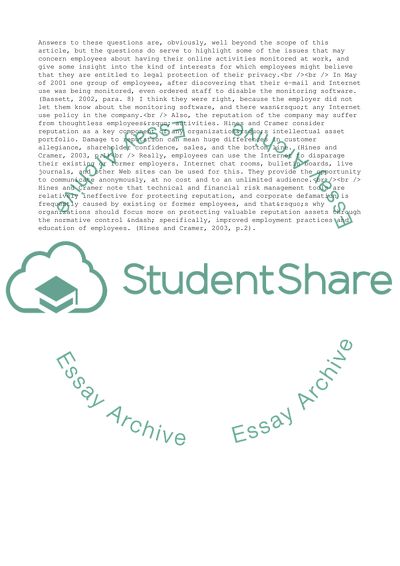Cite this document
(Why a Policy is Needed Case Study Example | Topics and Well Written Essays - 2851 words, n.d.)
Why a Policy is Needed Case Study Example | Topics and Well Written Essays - 2851 words. Retrieved from https://studentshare.org/management/1535284-write-a-report-that-encourages-a-it-companyyour-own-company-to-adopt-a-policy-that-prevent-internet-misuse-at-workplace
Why a Policy is Needed Case Study Example | Topics and Well Written Essays - 2851 words. Retrieved from https://studentshare.org/management/1535284-write-a-report-that-encourages-a-it-companyyour-own-company-to-adopt-a-policy-that-prevent-internet-misuse-at-workplace
(Why a Policy Is Needed Case Study Example | Topics and Well Written Essays - 2851 Words)
Why a Policy Is Needed Case Study Example | Topics and Well Written Essays - 2851 Words. https://studentshare.org/management/1535284-write-a-report-that-encourages-a-it-companyyour-own-company-to-adopt-a-policy-that-prevent-internet-misuse-at-workplace.
Why a Policy Is Needed Case Study Example | Topics and Well Written Essays - 2851 Words. https://studentshare.org/management/1535284-write-a-report-that-encourages-a-it-companyyour-own-company-to-adopt-a-policy-that-prevent-internet-misuse-at-workplace.
“Why a Policy Is Needed Case Study Example | Topics and Well Written Essays - 2851 Words”, n.d. https://studentshare.org/management/1535284-write-a-report-that-encourages-a-it-companyyour-own-company-to-adopt-a-policy-that-prevent-internet-misuse-at-workplace.


